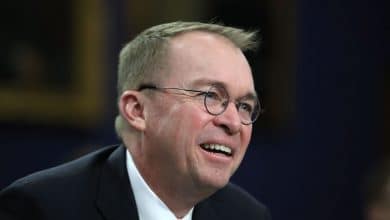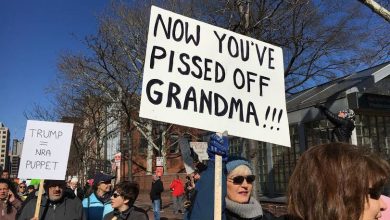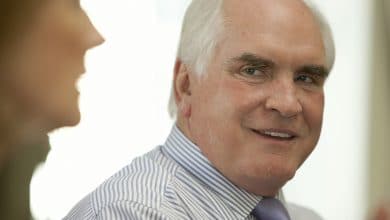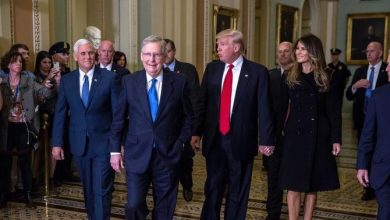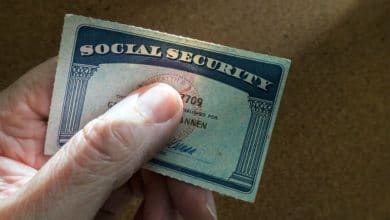MedicareSocial Security
Expanding Social Security And Medicare For Greater Independence And Freedom
Those in power want to curtail our freedom and independence, by cutting back on our health care and our basic economic security.
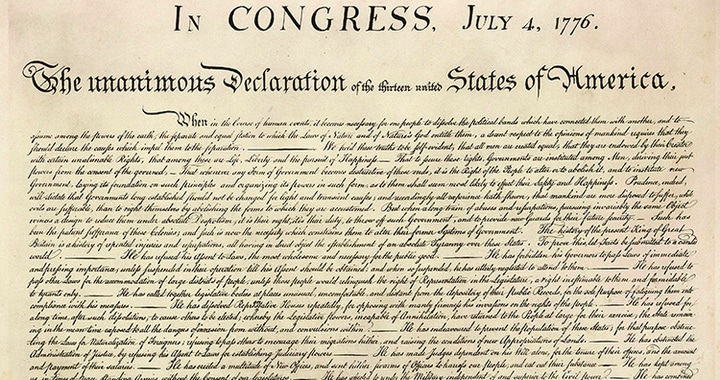
[dropcap]T[/dropcap]his fourth of July, we once again celebrate our independence and freedom. Our Declaration of Independence, written in 1776, proclaimed that all of us are entitled to “certain unalienable Rights, that among these are Life, Liberty and the pursuit of Happiness.”
No one can be completely free to enjoy these inalienable rights, however, without economic security and independence. President Franklin Roosevelt understood this clearly. Almost three-quarters of a century ago, he explained:
This Republic had its beginning, and grew to its present strength, under the protection of certain inalienable political rights—among them the right of free speech, free press, free worship, trial by jury, freedom from unreasonable searches and seizures. They were our rights to life and liberty.
As our Nation has grown in size and stature, however—as our industrial economy expanded—these political rights proved inadequate to assure us equality in the pursuit of happiness.
We have come to a clear realization of the fact that true individual freedom cannot exist without economic security and independence. “Necessitous men are not free men.”
As an important step toward that economic security and independence, Roosevelt created Social Security. He explained, when the Social Security Act of 1935 was signed into law, that what was enacted was simply “a cornerstone of a structure which is being built but is by no means complete.” It was a solid cornerstone, however, providing some measure of economic security, independence and freedom to older Americans.
At the time Social Security was enacted, Americans who became aged generally moved in with their adult children. If those older Americans had no children or other family members who could or would take care of them, they literally went to the poorhouse. Poorhouses and destitute senior citizens were a fact of life well before the Great Depression. Lee Welling Squier described, in his 1912 classic, Old Age Dependency in the United States, the inevitable fate most Americans faced as they aged:
After the age of sixty has been reached, the transition from nondependence to dependence is an easy stage—property gone, friends passed away or removed, relatives become few, ambition collapsed, only a few short years left to live, with death a final and welcome end to it all—such conclusions inevitably sweep the wage-earners from the class of hopeful independent citizens into that of the helpless poor.
Social Security changed that inevitable ending. Prior to Social Security, the poorhouse was always lurking in the background, haunting people as they aged. It was a powerful, ubiquitous image in the general culture. The early Monopoly boards, beginning with the game’s invention in 1903, contained a square labeled “Poorhouse.” Today, in a world with Social Security, that same exact square reads “Free Parking.”
Although most older Americans are just barely getting by economically, Social Security provides a dependable, secure monthly income that lasts until death. That secure income provides some measure of freedom to our nation’s seniors. Independent, secure income provides the ability to choose where to live, rather than begging for charity from family, friends, and neighbors.
Four years after the enactment of Social Security, Social Security survivor or life insurance was added. According to the Social Security Administration, an American worker age 20 has a 20 percent chance of dying before reaching retirement age. But that premature death no longer means destitution for the bereaved family, as it once did. In 1906, when Adam Rogalas, a worker with the Iron City Grain Elevator Company was killed at work, when the supports of the floor above gave way, dumping heavy bags of stored grain on him, his widow and five children were left penniless. She helped her family survive by begging outside the Catholic church on Sundays. Today, she and her children would receive Social Security.
In 1956, Social Security added disability insurance protection, for those who find themselves unable to earn enough to support themselves and their families, as a result of a life-changing illness or accident. And in 1965, Medicare was added for seniors, and, a few years later, for people with disabilities. But many more expansions are necessary to provide Americans with the independence and freedom that economic security provides. Medicare should be expanded to cover all of us, from the cradle to the grave, as Roosevelt and his advisors envisioned. Temporary disability protection ― providing wage replacement when workers are sick, must take time out of the workforce to care for children or ailing parents, or experience other events that result in short term loss of earnings, should be added. Benefit levels should be increased. Medicare should be improved.
The question of whether to add to the structure begun by President Roosevelt is a matter of values. We are wealthier now, as a nation, than we have ever been before in our history. How we choose to spend our common wealth is for all of us, collectively, to decide. Fortunately, the American people want to see our Social Security and Medicare system expanded, not cut.
Today, we are at a crossroads. Those in power want to curtail our freedom and independence, by cutting back on our health care and our basic economic security. We should all resist these attacks and resolve, this Independence Day, to fight to increase our freedom by joining together and providing ourselves and each other with expanded Social Security and Medicare.

